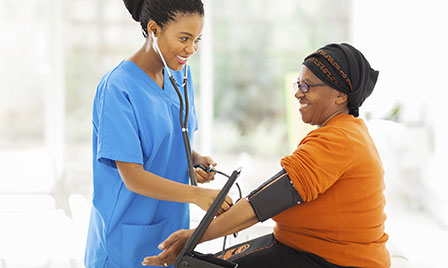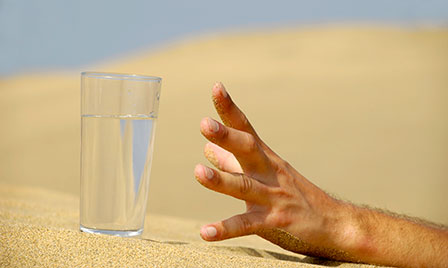
The right food for thought
Just like the rest of your body, your brain needs the right food to perform well. Good choices include: vegetables, whole grains, monosaturated fats (such as olives and avocados), healthy proteins (such as salmon, trout, seeds and walnuts), as well as fruits (such as apples—especially the skin) and antioxidant filled berries and pomegranates. Other foods that may help ward off dementia (such as Alzheimer's disease) include caffeinated coffee and tea, turmeric, and a low carb diet of less than 60 grams per day.

Exercise improves brain power
Studies show a strong link between regular exercise and a boost in verbal memory and learning. We recommend 150 minutes of moderate aerobic activity or 75 minutes of vigorous aerobic activity per week. The 150 or 75 minutes should be achieved through three to four days of exercise per week. Strength training should also be incorporated into your regular exercise routine two or more days per week.

Blood pressure now affects your brain later
Research demonstrates a link between uncontrolled high blood pressure when you're young, and damage to the brain as you age by increasing the risk of developing dementia or having a stroke. Maintain a healthy blood pressure—usually less than 120/80 mmHg to help ensure late-life brain health.

Your brain never sleeps, but you should
You might think your brain snoozes when you do, but the reality is your brain is busy working while you sleep. It processes information, makes decisions, consolidates and organizes memories—it even flushes out toxic molecules. Adults in their 20's and 30's should get at least six to eight hours of sleep every day, but keep in mind that every brain requires a different amount of sleep. For some, even eight hours a day may not be enough; if you wake up feeling fatigued you probably need more sleep.

Brains get thirsty, too
Your brain needs to be fully hydrated to perform at its peak. We see worse outcomes in stroke and other brain-affecting diseases when people are dehydrated. Your brain will tell you that hydration is needed in the form of thirst or hunger. It is important to know that our thirst sensation decreases with age and it's a good idea to teach yourself to drink water regularly throughout the day.

Keep learning to keep rewiring
As we learn, our brain cells reach out to one another to form new connections—rewiring—and eventually become more efficient. The more your brain is exposed to new things the better it becomes at learning other new things. Keep learning something new, whether it's a new language, game, or sport to help improve brain function.

Protect your melon
The best return on investment for your brain is to wear a helmet when biking, skateboarding, and playing contact sports—any activity where your head could take a knock. Even a mild impact can cause damage that may emerge in later years as dementia or cognitive impairment.













